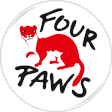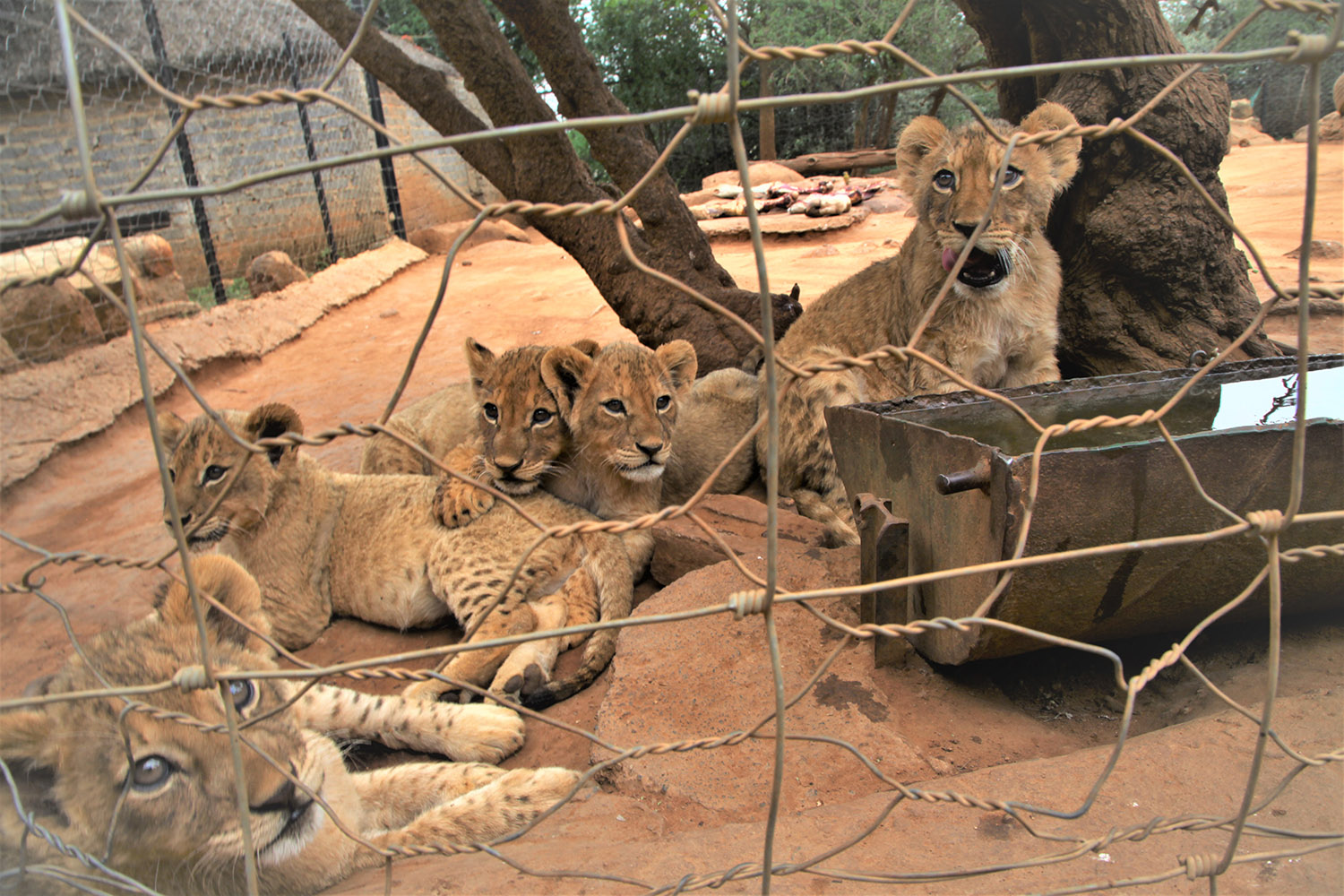South Africa farms big cats for international trade and is the biggest exporter of live big cats and their parts globally. Ineffective and fragmented national regulation have created a big cat industry that is completely out of control.
It’s estimated over 10,000 lions are currently on South African farms and recent government figures state that over 600 non-native tigers are in the country, although that figure is impossible to discern as there is no mandatory registration of numbers, births, deaths, or movement of tigers.
Leopards and jaguars are also farmed for commercial purposes on the same big cat farms as lions and tigers and also subject to international trade in live animals and parts.
The big cats are used as tourist attractions, including cub petting, ‘walk with’ opportunities, and subsequently for trophy hunting as well as the trade in live animals and their parts.
The country supplies big cats and their parts to Asian countries, some of which are hotspots for consumer demand for big cat parts used in traditional medicines and as so-called luxury items. Demand for tiger products is a threat to nearly all big cats due to how difficult it is to differentiate one big cat part from another. This demand drives poaching and trafficking. By supplying and stimulating consumer demand and contributing to illegal trade, South Africa’s captive big cat industry hinders conservation and enforcement efforts both in South Africa and globally.
In March 2024, the South African Cabinet approved a Policy Position to end the captive keeping of lions for commercial purposes and close captive lion facilities. Shortly after, a Ministerial Task Team report recommended voluntary exit options for the captive lion industry and suggested including other predators in the phase-out plan. But it is still not known if or how any recommendations will be implemented and there is more work to be done to protect all big cat species.
A 2024 FOUR PAWS report sets out the following recommendations to phase out the industry:
- South Africa to prohibit all commercial trade of big cats, parts and derivatives within, into and from the country.
- South Africa to end the captive keeping of all big cats for commercial purposes, close captive big cat facilities, end the intensive breeding of big cats in controlled environments, and end the commercial exploitation of captive and captive-bred big cats.
- South Africa phases out its big cat industry, implementing a phase-out plan with goal of a complete closure by 2030.
- South Africa to implement all relevant CITES Decisions and Resolutions relating to big cats.
- South Africa takes the leading role in advocating for the protection of all big cats by proposing that they be granted the same level of protection under CITES.
We are campaigning to ban all commercial trade of big cats and their parts from, within and to South Africa. But we need your help.
Please add your name to our petition now!

